News from Maison de la Gare
This Is Too Much!
Tweeter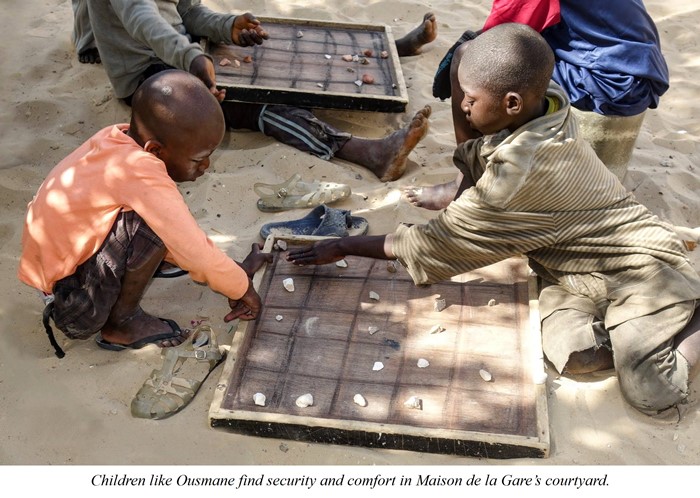
Ousmane's story trumpets the critical need for Maison de la Gare’s work
Ousmane is a 12-year-old from one of Senegal’s larger cities. He was a difficult child, skipping
school, fighting with his parents, and associating with worrisome friends.
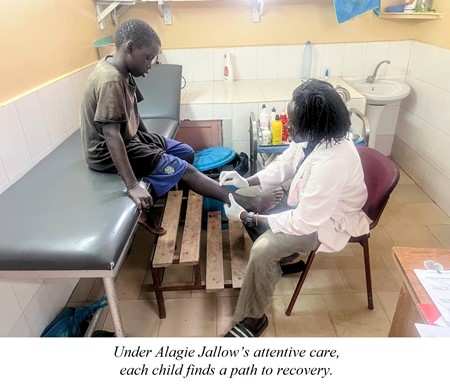 So, two years ago
Ousmane’s parents entrusted him to the Saint-Louis daara of his father’s cousin, a marabout, who
promised to give Ousmane an education and teach him the Koran.
So, two years ago
Ousmane’s parents entrusted him to the Saint-Louis daara of his father’s cousin, a marabout, who
promised to give Ousmane an education and teach him the Koran.
What followed turned Ousmane's life upside down. Already a difficult child having a problem with
authority, he refused to beg and was always getting into fights with the other children. He'd go
out all day and only come back at night to sleep. He would never bring home the daily quota of
money assigned to him.
To break Ousmane’s resistance, the marabout locked him in a room with no electricity, water or
sanitary facilities and barely fed him. Alone and starving, Ousmane tried to rebel but was
brutally beaten. Finally, he gave in for fear of being imprisoned again.
The marabout, convinced that Ousmane would now be obedient, sent him to work as a domestic in a
woman's home, a common practice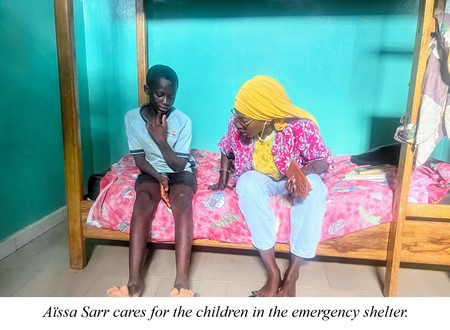 in Senegal. He did the household chores without receiving
anything in return, while the marabout pocketed his salary.
in Senegal. He did the household chores without receiving
anything in return, while the marabout pocketed his salary.
One morning, unhappy with a job that Ousmane had done, the woman hit him on the head with a jar,
inflicting a serious wound. She accused Ousmane of attacking her and asked the marabout to come
and get him. Terrified of being sent back to the daara, Ousmane took advantage of a moment's
distraction to flee to the market, where he had heard of other talibés on the run.
Finding Maison de la Gare
Ousmane learned about Maison de la Gare from Lamine, a former talibé who works at the Saint
Louis fishing wharf. Seeing that the wound on Ousmane’s forehead was becoming infected, Lamine
was concerned and told Alagie Jallow, our nursing assistant, about this. Alagie convinced
Ousmane to come to the infirmary, so that he could treat his wound.
After treating him, Alagie took Ousmane to the emergency shelter. Convinced that his injury
was the result of violence, 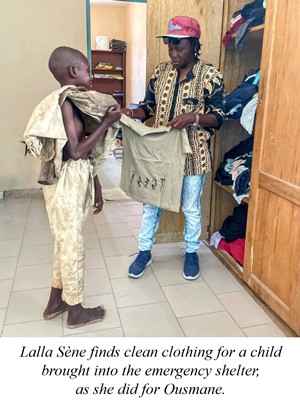 Aïssa Sarr, our street educator, began by getting him to shower
and put on clean clothes. She then spoke with Ousmane to understand his situation and provide
him with appropriate help. Ousmane agreed to trust her, and he was registered in our
emergency dormitory where he stayed for several days.
Aïssa Sarr, our street educator, began by getting him to shower
and put on clean clothes. She then spoke with Ousmane to understand his situation and provide
him with appropriate help. Ousmane agreed to trust her, and he was registered in our
emergency dormitory where he stayed for several days.
During his stay, Ousmane benefited from healthy meals and regular care for his wound. More
importantly, Aïssa and our other street educators met with him regularly, giving him
affection and reassurance. Gradually, secure in the safety of our center, he felt more at
ease and was able to play with the other talibé children.
Hope for the future
Most encouragingly, by the end of his stay Ousmane seemed like a normal 12-year-old. His
behavior was exemplary. He was resilient and showed a willingness to move forward.
Our educators tracked down Ousmane’s parents to inform them of his situation. Thanks to a
mediation session with our president, Issa Kouyaté, the emergency-shelter team and his
father, his father agreed to allow him to return home to his community. There is a
specialized boarding school in his town for children like Ousmane, and he is now enrolled
there so that he can continue a positive path to a normal childhood.
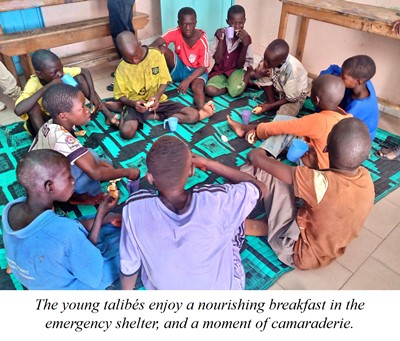
Our educators took advantage of the situation to help Ousmane’s father to understand him better, and to find better ways of communicating with him. We will check in on them regularly, providing any support they need. They know that they can call on us at any time.
_________
Ousmane’s name has been changed in this report, and he is not depicted in any of the
photos. He was one of 78 children taken into our emergency shelter in the first six
months of this year, most of them with similarly heart-wrenching stories.
How could this happen? Ousmane’s parents, in desperation, clearly made the wrong decision
in sending him away to be someone else’s problem. Ousmane’s marabout took advantage of
his parents’ lack of responsibility to terrorize him and make him his slave.
The woman who took Ousmane on as an unpaid domestic servant showed a total disregard for
the rights and welfare of the child. Such child labor is a scourge on society. All too
often, children are exploited like this, forced to perform arduous tasks for derisory
sums. Raising awareness of children’s needs and the right to a safe and dignified
childhood is a priority for Maison de la Gare.
Finally, the government must assume its responsibilities. International agreements and
national laws outlaw the worst practices that Ousmane experienced. We advocate for
these to be respected.

